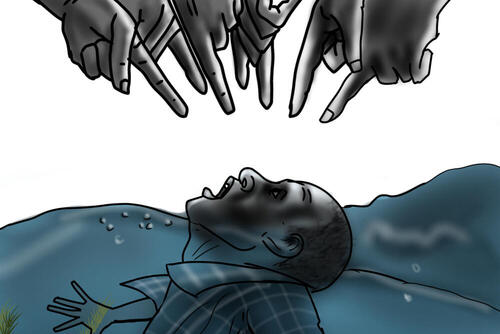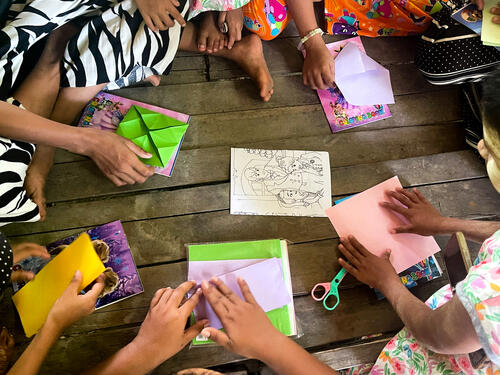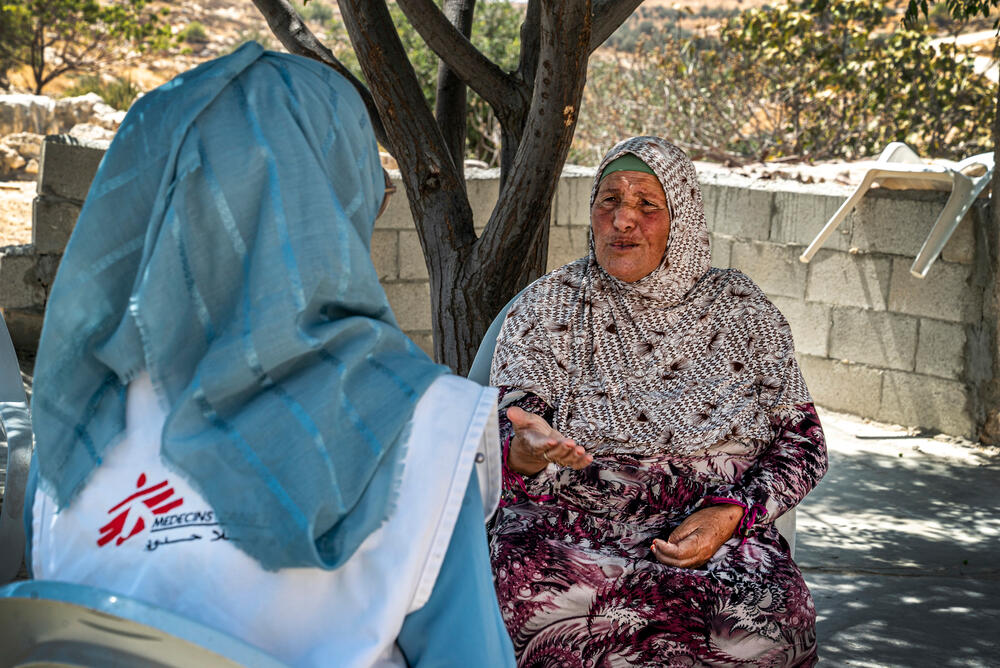Mental health
The psychological impact of a humanitarian emergency can be severe.
Médecins Sans Frontières / Doctors Without Borders (MSF) teams provide emergency medical aid in catastrophes all over the world — armed conflicts, natural disasters, famines and epidemics.
However, for people who have lived through these traumatic events, survival goes beyond physical wellbeing.
Worldwide, around one in four people will suffer from a mental health problem during their lifetime, yet roughly 60 percent will not seek help.
These figures dramatically increase when factors such as violence, persecution, the need to flee, disasters or a lack of access to healthcare are involved.
For this reason, in 1998 MSF formally recognised the need to provide mental health and psychosocial care as part of our emergency work.
In 2023, our mental health teams provided 493,900 individual consultations across our projects.
Who is MSF?
MSF is an international humanitarian organisation providing medical care in more than 70 countries.
Since 1971, we have been treating people caught in complex crises and chronic healthcare emergencies around the world.
Spotlight: The mental health crisis in Ukraine
Mental health in humanitarian emergencies
Traumatic events
People caught in a humanitarian disaster may have been separated from their families or witnessed the deaths of loved ones. Others may have been forced to flee, searching for shelter, supplies and safety.
These events can immobilise people with depression and anxiety at a time when they need to take action for themselves and their families. Some patients can develop conditions such as post-traumatic stress disorder (PTSD).
Being forced from home is a particular problem for people already suffering from mental health problems. They can lose access to existing treatment and routine care, which may cause them to develop further symptoms or more severe conditions.
MSF mental health professionals are there to listen and support so that traumatic experiences do not come to define our patients' lives.
Holistic support
Mental healthcare forms a crucial part of our services for HIV/AIDS, tuberculosis, malnutrition, sexual violence and disease outbreaks.
Our primary aim is to reduce people’s symptoms and improve their ability to function. Often this work is done by local counsellors specially trained by MSF, while our psychologists or psychiatrists provide technical support and clinical supervision.
Severe mental illness
Specialised clinicians are available to treat severe mental illness.
However, this accounts for a minority of the cases seen by MSF. Treating people with existing serious conditions (such as schizophrenia or bipolar disorder, for example) remains a challenge, given the complexity of managing psychiatric medication and treatment.
Increasing our capacity to treat these illnesses remains a priority for MSF.
Challenges
Establishing mental healthcare programmes in emergencies is not straightforward, mainly when violence and trauma may be ongoing, or language and cultural barriers may prevent people from seeking support. Our community outreach teams increasingly play an essential part in tackling this.
It is often difficult to guarantee continuity of care in unstable and dangerous environments. However, the needs are high, and we are continuing to expand our mental health programmes.
Mental health: Key facts
1 in 5
PEOPLE EXPERIENCE MENTAL HEALTH ISSUES DURING A HUMANITARIAN EMERGENCY
493,900
MENTAL HEALTH CONSULTATIONS PROVIDED BY MSF TEAMS IN 2023
2,010,900
GROUP MENTAL HEALTH CONSULTATIONS IN 2023
MSF staff and mental health
For MSF's emergency response work to be carried out, there is another crucial issue: the mental health of our teams.
Often away from home for long periods, working under pressure and required to process traumatic events, humanitarian aid workers must also be given the professional support and headspace they need.
Local MSF staff will often come directly from the communities receiving our care. While this is useful for our teams to understand social and cultural issues better, it also means that these staff members are closer to the same traumatic events experienced by our patients. Our local staff, therefore, receive psychological support.
For international team members, coming home from an assignment is often the time when mental health support becomes the most necessary. Many struggle with the knowledge that, for their patients, returning home may not be an option.
However, MSF remains committed to helping our staff re-adapt to their routines and process their experiences.
Mental health: News and stories



